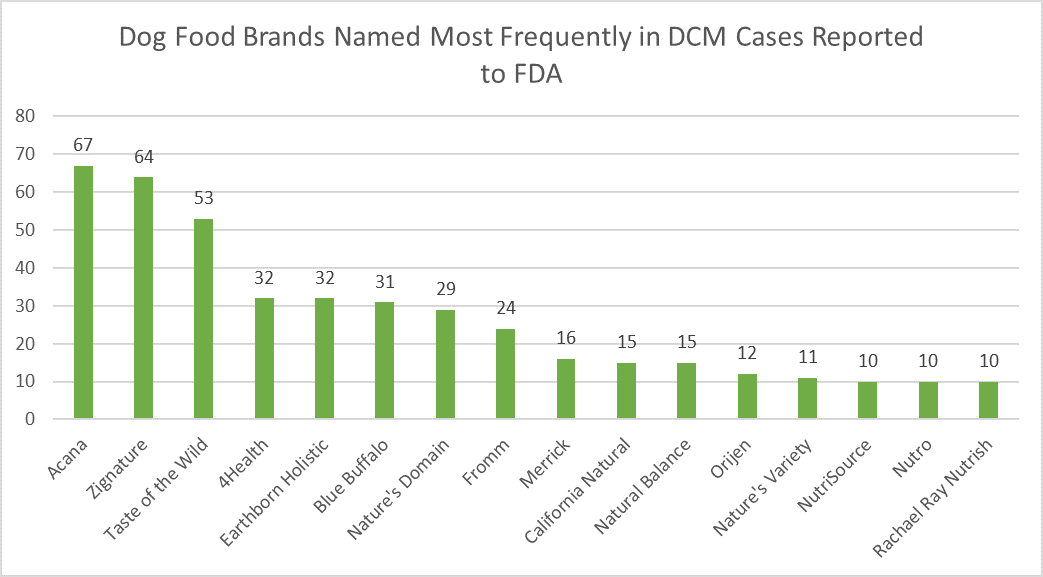The FDA released a list of foods yesterday that they have associated with Dilated Cardiomyopathy (DCM) in dogs.
Their list, their statements and reports leave a lot more questions than answers. First and foremost how large was this study? Is there enough conclusive data to name specifically brands of food that can cause DCM when they freely admit that they don’t know what causes DCM with the exception of certain breeds that are genetically predisposed.
The study used data collected from reported DCM cases from January 2014 – April 2019, just over 5 years. The number of reported cases was 560. Of that 560, 95 cases were Golden Retrievers, the breed that has the highest predisposition to DCM. That is not a very big study considering that there are around 77 million dogs in the United States
How in the world can the veterinary field call a case of DCM nutritionally-related in a breed that has the genetic roll of the dice against them to begin with? Not to mention Golden Retrievers are the 2nd most popular dog breeds in the U.S.

Who is funding this study? Maybe the answer is found by who is not named on the list? The very foods that the veterinary community claims are the only acceptable food to feed your pets; Hill’s Science Diet, Purina Pro Plan, Iams and Royal Canin.
If you have the patience to scroll thru 77 pages, please look at the complete list of reported cases and you will find these foods listed as being eaten by dogs diagnosed with DCM during this study, but somehow they did not appear on the ‘official’ list. DCM complaint file 1.1.2014-4.30.2019.pdf
If you do scroll thru these cases, please also note the ages of the dogs. It appears to me that a lot of these dogs were at the top end of their natural life spans. I’m no scientist, but if my 97 year old mother were diagnosed with DCM today I would not be blaming her cottage cheese.

One part of the statement by the FDA mentioned that they did not really have all the facts because diagnosing DCM by an echocardiogram was not cheap, so some cases may not be reported. Fair enough, some families may not have the funds for extensive veterinary testing.
But guess what all these foods listed have in common? They are not cheap! So the majority of confirmed diagnoses’ are
From households who have a higher disposable income and are able to afford foods that they have educated themselves to choose as the best for their pet.
If there is ever a problem with any of our foods we would be the first to pull it off our shelves. In my opinion this study does not justify the wide-spread fear and panic that the release of this information has caused. Millions of pets have been eating the foods listed with no health issues at all.
The following was taken directly from the FDA Q & A page regarding nutritionally-related DCM:
It’s important to note that the reports include dogs that have eaten grain-free and grain containing foods and also include vegetarian or vegan formulations. They also include all forms of diets: kibble, canned, raw and home-cooked. Therefore, we do not think these cases can be explained simply by whether or not they contain grains, or by brand or manufacturer.
To put this issue into proper context, the American Veterinary Medical Association estimates that there are 77 million pet dogs in the United States. As of April 30, 2019, the FDA has received reports about 560 dogs diagnosed with DCM suspected to be linked to diet. Tens of millions of dogs have been eating dog food without developing DCM.
Connie Roller
CRoller@FeedBagPetSupply.com
6.28.2019


